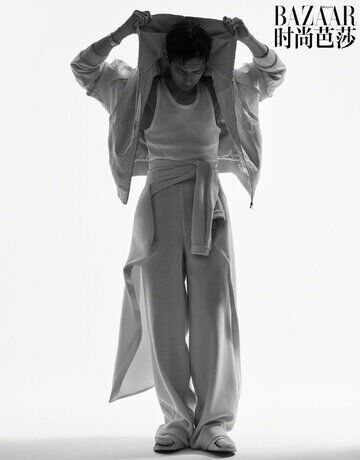A Love Never Lost Episode 1 Recap
> A Love Never Lost Recap
In the year 1990 AD, at a time of crisis in modern China, the Eight-Nation Alliance invaded Beijing, Empress Dowager Cixi fled with Emperor Guangxu; the uprising of the Self-Government Army initiated by Tang Caichang and revolutionary comrades was brutally suppressed. “Forty million people weep in unison—where in the world lies the realm of China? ”Communist ideology had not yet entered China. A multitude of competing ideologies influenced the youth of the land.
Some upheld feudal autocracy, some advocated constitutional monarchy, and others yearned for more radical revolution. Various forces were entangled in fierce struggles, while the young people explored their own paths amidst the tides, striving to find a direction for China’s future on the grand stage of a turbulent history. . . In the 27th year of Emperor Guangxu of the Qing dynasty, namely 1901 AD, the revolutionary organization's base in Jingzhou, Huzhou, was discovered and dismantled.
Revolutionary Yang Kaizhi became a prisoner. The Bannermen officers had them decide their fate by casting bamboo divination blocks—two down meant death, one up and one down or two up meant release. Yang Kaizhi was lucky, casting one up and one down, narrowly escaping death. Young bannerman Liang Xiang came to the banner camp to watch the beheadings and happened to escort Yang Kaizhi out. They were the same age, both seventeen.
But Liang Xiang was different from Yang Kaizhi—he was a bannerman, born and raised to become a soldier, and could only officially serve in the banner guard upon turning eighteen. That day, Liang Xiang had skipped class and secretly returned to the school, only to be caught and scolded by his teacher. All the students covered for Liang Xiang with lies and were punished together. Each young man had to carry a bowl of water without spilling a drop.
Liang Xiang made a bet with his classmates—if he won, he’d get twenty pieces of fried dough. He balanced the bowl on his forehead and walked step by step back home, not spilling a single drop. Liang Xiang’s mother, a descendant of Prince Dorgon of the Heshou Rui lineage, knew her son was mischievous and scolded him briefly before preparing to head out.
The wife of the prefect had invited the wife of the Hubei-Hunan Salt Transport Commissioner for a banquet and asked Liang Xiang’s mother to accompany them. Surprisingly, the Commissioner’s wife was extremely deferential in front of the banner matriarch Liang, even kneeling in salute. The prefect’s wife only knew that Liang Xiang’s mother was the widow of a military officer from the banner camp and was unaware she was actually a descendant of Dorgon.
After the banquet, the Commissioner’s wife was furious that the prefect’s wife had brought Liang Xiang’s mother along and left in anger. Liang Xiang later carried his drunken mother home from the prefect’s residence. The next day, Liang Xiang’s teacher informed him that he could no longer teach him. Liang Xiang was to be sent to the Archives Office, a subordinate institution of the Imperial Academy during the Qing dynasty, mainly responsible for handling Manchu-language memorials and official documents.
An imperial decree arrived in the capital, specifically naming Liang Xiang to go to Shanghai. It was during the westward retreat of the Empress Dowager and Emperor, and the authorities had plans to rebuild Xi’an’s military strength by forming a new army. The imperial capital’s pampered nobles had become completely rotten, and no suitable talent could be found. Thus, they chose Liang Xiang, intending to send him to study military affairs in Japan to broaden his horizons.
Liang Xiang was stunned. His mother was also skeptical at first, but upon learning that the Deputy Commander himself had informed Liang Xiang, she exclaimed that a cold pot was suddenly boiling, nearly fainting from surprise. In July 1901, under the threat of imperialist diplomacy and military force, the Qing government sent Emperor Guangxu’s brother Aisin Gioro Zai Feng from Beijing to Germany to deliver a formal letter of apology.
Song Baoquan, Vice President of the Shanghai Chamber of Commerce, organized a grand reception for Aisin Gioro Zai Feng’s passage through Shanghai. Yang Kaizhi brought a box of promissory notes to Shanghai to deliver to Song Baoquan and made one request—that he be included among the students sent to study military affairs in Japan. Xie Shuhong, the second daughter of the Kaiwentang Pen Shop, traveled to Shanghai on the Song family’s private ship and met her brother-in-law Yang Yifan.
Yang Yifan had opened a girls' school in Shanghai but currently had no students. Business-savvy Xie Shuhong offered him some ideas.















